Tags :: Silent
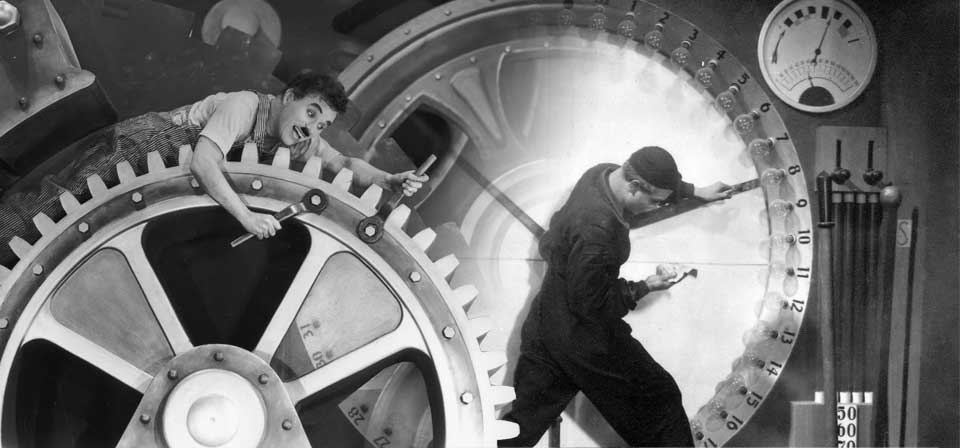
Silent rage against the machine: Metropolis and Modern Times
Metropolis is an operatic, dystopian science-fiction parable with roots in various sources including biblical and medieval Christian imagery, while Modern Times is a satiric comedy at times recalling Dickens and anticipating “Dilbert.” Yet the two films converge around political, economic, social, and technological themes.
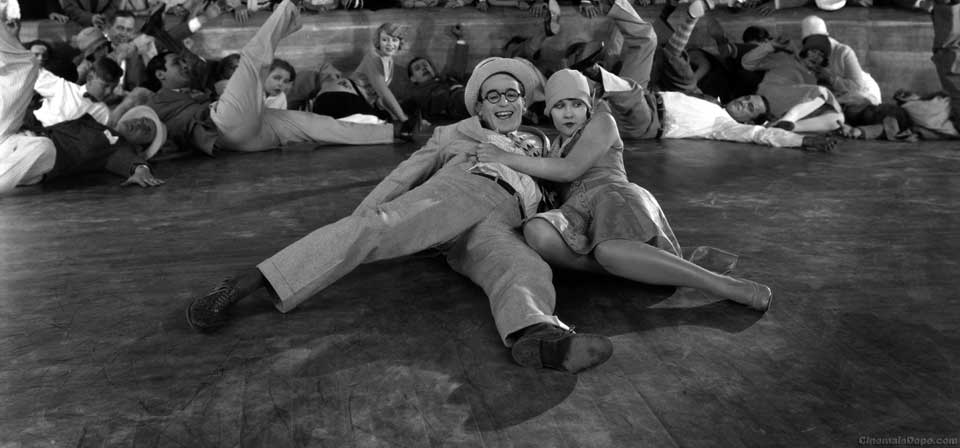
The down-to-earth comic genius of Harold Lloyd
Due to the vagaries of history, Lloyd is less well-known today than Chaplin or Keaton, but his legacy lives on. If you’ve seen Back to the Future (1985), Bringing Up Baby (1938), any of Jackie Chan’s movies, or any incarnation of Superman or Harry Potter, or you’ve experienced Lloyd’s influence.
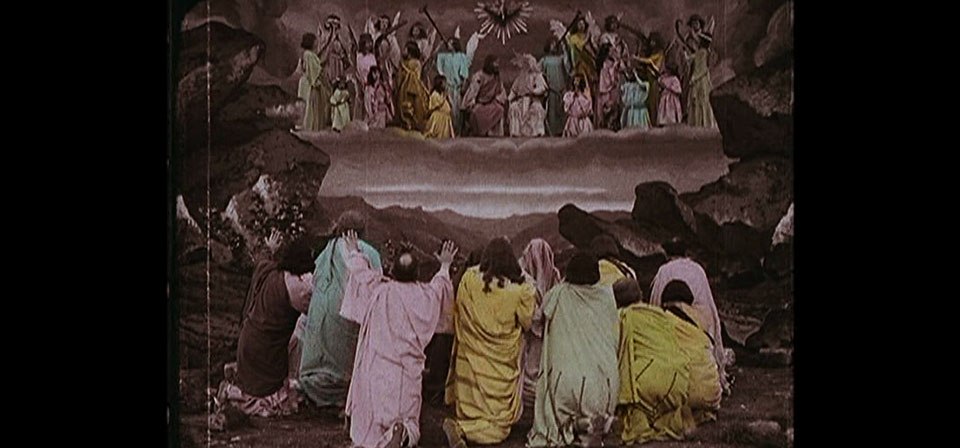
The Ascension of the Lord: My favorite screen depiction
My favorite cinematic depiction of the Ascension of Jesus is one of the very first, from a very early silent film released 110 years ago.
The Harold Lloyd Comedy Collection
For fans of silent comedy, it’s the DVD event of the decade: Harold Lloyd, the “Third Genius” of silent comedy (Chaplin and Keaton being the other two), until now almost totally unavailable on DVD, at last enters the modern home-video age in grand style with the The Harold Lloyd Comedy Collection.
The Gold Rush (1925)
New from the Criterion Collection, Charlie Chaplin’s comedy classic The Gold Rush is now available on Blu-ray and DVD in a single edition that includes both the original 1925 silent film and Chaplin’s 1942 reworking of the film in a quasi-sound edition, with humorous, documentary-like narration replacing the intertitles.
The Three Musketeers (1921)
Danny Kaye in that classic swashbuckling satire The Court Jester may well have been thinking of the great Douglas Fairbanks when he described his own character with the words: “He never walks when he can leap, he never flees when he can fight. He lives for a sigh, he dies for a kiss, he lusts for a laugh!”
Ben-Hur [A Tale of the Christ] (1925)
At nearly 2½ hours long, the 1925 version is still an hour shorter than the 1959 version, yet the story is essentially the same, and the scale similarly impressive.
Steamboat Bill, Jr. (1928)
The film’s great claim to fame lies entirely in its wholly unexpected third act, which essentially jettisons the amiable comic plot driving the first two-thirds of the film in favor of a wildly inventive and increasingly audacious series of stunts and set pieces as Keaton battles a raging tornado.
Napoléon (1927)
It is an extraordinary artifact from another culture, a mythology as remarkable and as alien as the Epic of Gilgamesh or the Icelandic Eddas. For students of silent film, this is one of those indispensable landmarks you must see before you die.
The King of Kings (1927)
Cecil B. DeMille’s biblical silent masterpiece The King of Kings, until now available in home video only in DeMille’s shortened 112-minute 1928 cut, is now available in a new restored DVD edition from Criterion that includes both the original 155-minute 1927 “roadshow” version and the shorter general release version.
Peter Pan (1924)
Continuing a stage convention that would extend to subsequent film versions, Pan is played by a petite woman, teenaged Betty Bronson (hand-picked by Barrie himself), who brings tomboyish energy and dash to the role. Ernest Torrence sneers with foppish malevolence as Captain Hook, and Mary Brian makes a charming Wendy. The stage flying effects work just as well onscreen, and George Ali reprises his delightful costumed animal performances from the stage as Nana and the crocodile.
The Thief of Bagdad (1924)
Rivaled only by the awesome Babylonian segments of D. W. Griffith’s Intolerance, Douglas Fairbanks’ lavish, extravagant The Thief of Bagdad ranks as the very pinnacle of silent-era spectacle.
Grandma’s Boy (1922)
More charming than uproarious, Grandma’s Boy isn’t in the same league as films like >The Kid Brother, Speedy, and Safety Last! However, it’s well structured for its day, and set the pattern for Lloyd’s best comedy features by helping to define the definitive dramatic story-arc for Lloyd’s already-famous “Glasses Character” persona.
Intolerance (1916)
Intolerance is a grandiose composite epic, interweaving four separate morality plays from different eras and settings, from 20th-century America (the "Modern Story") to Old Testament times (the "Babylonian Story"). Rounding out the four are a brief survey of the life and death of Christ (the "Galilean Story" [sic; most of it is set in Judea, not Galilee]) and events from the 16th-century persecution and massacre of Huguenot Protestants under the Medicis, including the St. Bartholomew’s Day Massacre (the "French Story").
The Birth of a Nation (1915)
Yet the film’s second half, with its outrageously racist stereotypes and view of the post-war reconstruction, incited protest even in its own day, and has only become more disturbing over time. Had Griffith concluded the film at the close of Part I with the stunning depiction of Lincoln’s assassination, controversy over the film would be a mere footnote. But there’s no ignoring the film’s final act, which, following the source novel and play The Clansmen by white supremacist Thomas F. Dixon Jr., celebrates the founding of the original Ku Klux Klan, climaxing with the Klan heroically subjugating out-of-control black rioters and restoring white control.
Metropolis (1927)
Surreal, sprawling, and operatic, drawing on biblical and medieval Christian imagery as well as H. G. Wells’s The Time Machine, Fritz Lang’s deeply influential pulp allegory Metropolis colonized a new realm of the imagination that has shaped subsequent science fiction from Flash Gordon to Star Wars, from "The Jetsons" to Blade Runner.
City Lights (1931)
City Lights is the quintessential Chaplin film — both the most perfectly crafted and satisfying of all his films, and also the most representative of all the different textures and tones for which Chaplin is remembered, from slapstick and pantomime to pathos and sentiment, farce and irreverence to melodrama and social commentary.
Our Hospitality (1923)
Buster Keaton’s first feature-length comedy is one of his best, a comic gem set against a backdrop of a Hatfield-McCoy style family feud. Raised far from the scene of generations of “McKay-Canfield” violence, young Willie McKay (Keaton) knows nothing about the bad blood between the two families — until the time comes for him to go home and claim his inheritance.
From the Manger to the Cross (1912)
The art of cinema had advanced dramatically in the few years between the two films, and From the Manger to the Cross is far more sophisticated — though I actually find the earlier, more primitive Life and Passion more effective. Even so, both are worthwhile, and they make a good double bill.
Watching Silent Movies with Children
The open-mindedness of the young obviously imposes a huge responsibility on parents to watch what their children are exposed to. But it also represents a tremendous opportunity to expose children to valuable and worthwhile experiences that for many of their peers will be lost, possibly forever, by the time they are teenagers.
The Life and Passion of Jesus Christ (1905)
The Life and Passion of Jesus Christ is a remarkable relic from the very dawn of cinema.
The General (1927)
Arguably the greatest of Buster Keaton’s silent comedies, The General begins with a single, brilliantly sustained premise and works it into an engaging story that combines edge-of-your-seat excitement, stunningly conceived stunts and sight gags, spectacular set pieces, touching sentiment, and a rousing finale.
The Navigator (1924)
Buster Keaton’s most popular vehicle in his own day, and said to be Keaton’s favorite of his own films, The Navigator isn’t as sophisticated and satisfying as his best work (e.g., The General), but it’s still brilliant slapstick comedy, with a rousing third act and a slam-bang climax.
Nosferatu: A Symphony of Horror (1922)
Though diminished by decades of pop-horror incarnations, the vampire remains uniquely evocative of both dread and fascination, horror and seductiveness. Monsters from werewolves to Freddy Krueger may frighten, but neither victims nor audience are drawn to them. By contrast, the vampire suggests the horror of evil working on our disordered passions.
The Black Pirate (1926)
Fairbanks’s astonishing acrobatics remain dazzling today, and the climactic battle includes some great underwater footage of an aquatic assault on the pirates. This film includes Fairbanks’ most famous and widely copied stunt, riding down a sail on the edge of a knife; but my favorite is the scene in which he cuts loose the corner of a billowing sail and then holds on as the wind carries him up off the deck of the ship and high into the rigging.
Don Q Son of Zorro (1925)
Don Q Son of Zorro, named one of the year’s ten best films by The New York Times, actually outdoes its predecessor, with a stronger and more sophisticated plot, better pacing, more interesting and complex characterizations, grander production values and set design, and more consistent action.
Robin Hood (1922)
Silent action king Douglas Fairbanks Sr. is the most exuberantly athletic of Robin Hoods, for sheer physicality perhaps outdoing even Errol Flynn’s definitive performance.
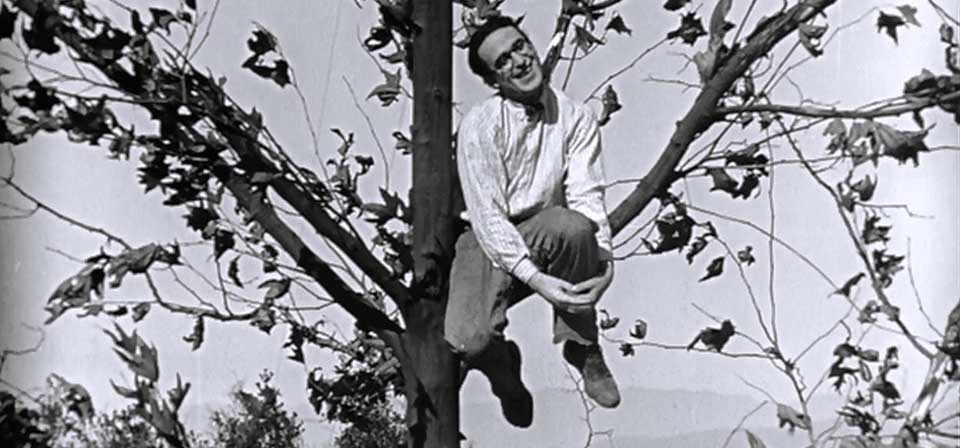
The Kid Brother (1927)
As a first introduction to silent film, I would pick The Kid Brother over the best of Chaplin (Modern Times, City Lights) or Keaton (The General, Steamboat Bill, Jr.) every time.
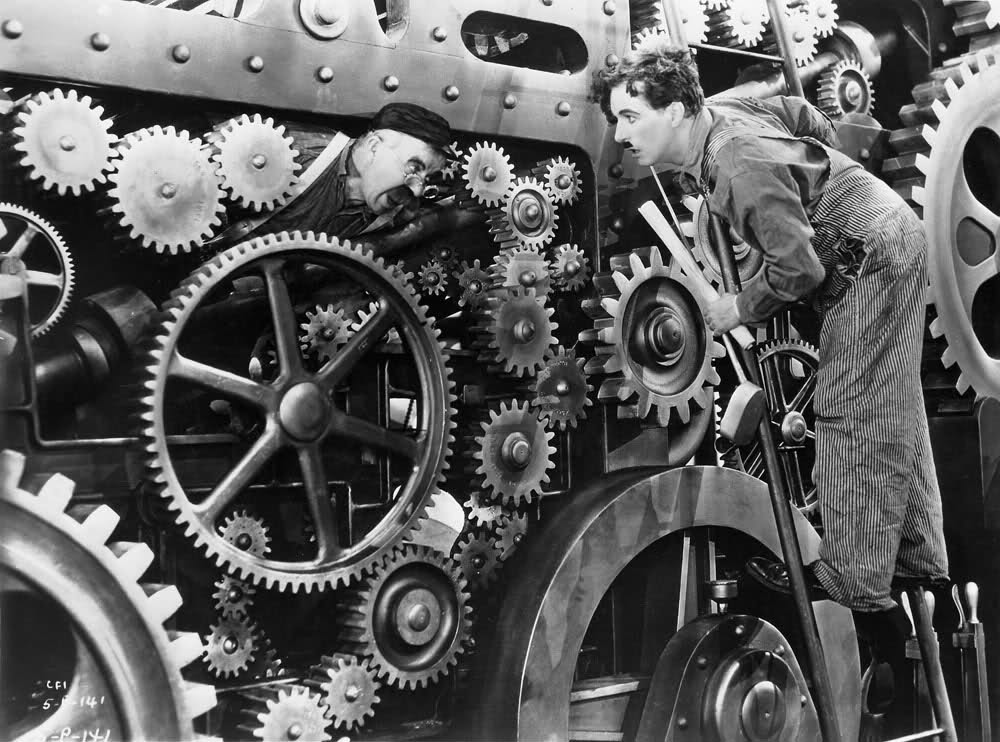
Modern Times (1936)
Silent films were already old-fashioned and out of vogue in 1936 when Charlie Chaplin completed his last silent feature film, Modern Times, almost ten years after the sound revolution began with The Jazz Singer. A silent film consciously made for the sound era, Modern Times is a comic masterpiece that remains approachable today even for movie lovers raised on computer imaging and surround sound.
Recent
- Benoit Blanc goes to church: Mysteries and faith in Wake Up Dead Man
- Are there too many Jesus movies?
- Antidote to the digital revolution: Carlo Acutis: Roadmap to Reality
- “Not I, But God”: Interview with Carlo Acutis: Roadmap to Reality director Tim Moriarty
- Gunn’s Superman is silly and sincere, and that’s good. It could be smarter.
Home Video
Copyright © 2000– Steven D. Greydanus. All rights reserved.